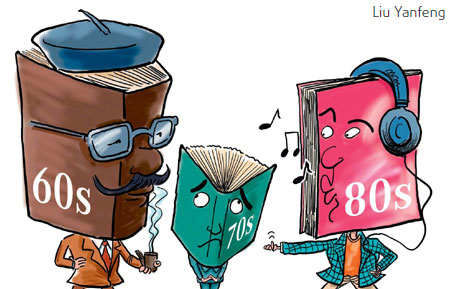The lost generation

Last week, I was in Phoenix - not John McCain's homeplace in Arizona, but the small town in west Hunan province. I was invited to attend a forum for young writers and critics. I did not make the cut in age, but "young" is flexible in China and I've seen a 55-year-old placed in this category. Fortunately, most of the attendees happened to fall neatly into one age bracket: They were born in the 1970s, which automatically makes them "post-70ers", or "70-hou" in Chinese.
The editors and critics attending the function assured me that those present are among those with the biggest potential in Chinese literature. Yet they do not have name recognition beyond the coterie of like-minded creative writers. Of those active today, the biggest names, such as Yu Hua and Su Tong, are "60-hou", but "they mostly achieved fame while in their 30s", I was told. Another batch of writers favored by the mainstream media are the "80-hou", especially Han Han and Guo Jingming.
The "70-hou", or shall I say "30-something", seems to have fallen through the crevice of public attention. They don't have the heft of the earlier generations, nor the aptitude for market forces displayed amply by the younger generation. Overall, they feel more affinity with the "60-hou" because they have a sense of history and vaguely remember the "cultural revolution" (1966-76), said one.















